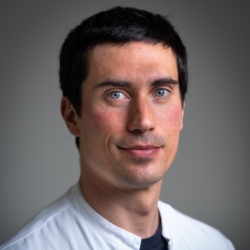
AG Hild
Dr. med. Benedikt Hild
Our laboratory is dedicated to studying the intricate process of early postnatal imprinting induced by the wild-derived microbiome. We have the privilege of utilizing the wildling mouse model that was created by Stephan Rosshart in the laboratory of Dr. B. Rehermann at the National Institutes of Health. This unique mouse model harbors a microbiome derived from the natural world that was shown to possess a greater translational research value compared to traditional mouse models.
The microbiome has emerged as a pivotal player in mammalian physiology and its impact on the development of diseases is profound. In our studies, we have demonstrated that early colonization with the wildling microbiome leaves a lasting impact on adult metabolism, potentially through programming of brown adipose tissue function.
The aim of our research group is to better understand how the early life programming of the metabolism occurs. Understanding the pathophysiology of obesity is critical because of its steeply rising prevalence in western countries that results in a highly relevant decline in life expectancy and quality-adjusted life years.
While our main focus lies in unraveling the mechanisms underlying long-lasting effects during the early postnatal period, our group is also actively engaged in addressing clinical questions. Presently, we are investigating the intricate relationship between the microbiome and inflammatory bowel disease, as well as its impact on patients with chronic intestinal failure.

Dr. med.
Benedikt Hild
Oberarzt, Ärztliche Leitung Klinische Ernährungsmedizin

Natalie Sadowski
BTA, AG Hild